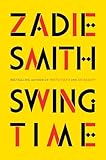Here are six notable books of poetry publishing in February.
Dolefully, a Rampart Stands by Paige Ackerson-Kiely
“You put your hands over everything / the throats limned, the tags snipped— / your throats snipped, your hands bit / the roses nip and nod.” Playful, punchy, clever, and strange, Ackerson-Kiely’s poems are on-rhythm and off-center. Her lines make me sit up and sort out: “The folding chairs are separated while mating”; “Inside the house the man’s voice / is a bed turned over by cops. / They find nothing but their own anger, / some old tissues.” These are northeastern pastoral songs, as in “The Grandmothers”: “In spite of what one pictures, / there is no bustle, no bonnet, / no consideration for the teats / swollen like trousers thrown / over a ladder in a soaking rain— / bedewed heifer stock-still in a particular pasture.” That phrase—“teats / swollen like trousers thrown”—stayed in my head, a curious consonance that turns the words inward. Come here for the language, but stay for the long prose poem sequence, “Book About a Candle Burning in a Shed,” a murder investigation that will make you want Ackerson-Kelly to narrate all mysteries. A woman’s clothes are found, her body possibly taken downriver: “Water’s high and full of silt, and it smelled like squash bugs and my ex-girlfriend’s neck when she worried about money.” The officer’s recursive vignettes of the case-in-progress are some of the most unique pieces you’ll read this year.
Magical Negro by Morgan Parker
Parker’s poetic latitudes are impressive. She bounds from anaphoric threnody to soft, recursive lines. She writes of Diana Ross, after Zora Neale Hurston, and in response to the 200th episode of The Jeffersons. She writes of the body: desire, longing, impatience, aching. She is gifted with the severity of single lines, including: “My body is an argument I did not start”; “Even the sun yawns when I pray”; “Isn’t repentance always a question?” Her poems ride cadences by turns clever and cathartic, as in “Why the Jive Bird Sings”: “Because—come / through numb // waters, dragging rosaries / and years, mouthful // of salt and lemon / trees.” Whether she is writing of race or language, Parker reworks syntax and phrases; she is playing the line and the reader. Consider the end of “Black Women for Beginners Pt. 1”: “We get hurt so often we never / run. Every time we lick our lips / the day obeys and repents. // Glory glory hallelujah. / Hot comb on the stove. / Train tracks in the weeds.”
A Piece of Good News by Katie Peterson
Placed at the first-quarter point of Peterson’s book is a masterful elegy for her mother titled “The Massachusetts Book of the Dead.” Its stanzas arranged in concise sections, the poem is foundational, a tonally divergent work that upends the playful early poems of her collection and interjects an earned seriousness into the work. “Sun, make yourself a silence on this house. / If my eyes are closed I am not sleeping. If they / are open let them rest / in between / the delicate snowflakes.” Her mother’s death freezes time, and is transformative; contemplating her, the narrator thinks how “the past and the pastoral / are not one sense. But past the outskirts / of the city, the fences fall away: / foundations of a house, / occupied by moss.” Poems after her elegy carry a melancholic touch, so that Peterson’s book evolves into a series of meditations and unanswered questions: “Was birth the worst thing, or the first / time a body left your bed?” An introspective and original collection.
Reenactments by Hai-Dang Phan
In “Quiet Americans,” the narrator and his father are “spooning our chicken vindaloo” in River Falls, Wisconsin, while they watch the film based on Graham Greene’s classic novel. The other half of their family are in Đà Nẵng. The father and son “aren’t interested in the love / triangle or whodunit, but are spellbound / by old Saigon flickering in the rear window, / shadows of rue Catinet.” They long for a world left, but must settle for the peace of their shared moment: “Snow puts the night on mute. / We know how it ends.” Reenactments invites us into Phan’s mind with specificity of scene and memory, as well as skilled usage of second person. “Get to Know Your Ghost” offers good advice: if haunted, learn your spirit’s “habits, eccentricities, fetishes.” The narrator’s ghost “looks like a lost salesman” in a gray suit, “briefcase / bulging with the expired / driver’s licenses of strangers.” In addition to his own work, he offers translations of work from several other Vietnamese poets, including Phan Nhiên Hạo. “Regarding the Spiritual and Social Situation of Vietnam Today” begins “Having lost our senses, / we carry on the struggle of cooking maggot corpses / from a busted refrigerator.” Subtitled with a note that these thoughts come from poets, there’s a melancholy and sarcastic feel to the piece: “Hope is a gas station— / SOLD OUT. / Look at those few sorry daydreamers / pushing their scooters around / so tiresomely.” Phan’s mixture of original and translated work creates a unique debut that is both singular and anthological.
A Cry in the Snow by Stella Vinitchi Radulescu (translated by Luke Hankins)
A poet of three languages, this is the first English-language edition of her French verse, including Un Cri dans la neige (A Cry in the Snow) and Journal aux yeux fermés (Journal with Closed Eyes). Her lines are smooth, yet surprising, as in “body to body”: “the tree in place of my thirst // I plant it in my eyes // I send its roots / into my veins.” Radulescu’s poems are full of these bodily transfigurations, including “interior”: “I wake in my own body and then / in the other / waking beside me / jealous that I stirred first.” The part-calm, part-delirium of the lineated works evolve into the prose poems of the second section, making for a diverse collection. “You can rearrange those pages. There is no order, no sequence. You can erase lines, add others, switch out the events.” The narrator is exasperated, exhausted, but firm: “It’s up to you. I won’t respond anymore. Too busy staying silent.” There is recursive talk of an unfinished book here; an ardent desire to write, the narrator’s voice an offering: “It’s three in the morning, the dead in their graves. I think of them. Thought is alive, warm, it gathers itself, forms a kernel that attaches itself to the world, and it begins to move, to shift. / I give the dead this gift, the only one possible.”
33 Poems by Robert Lax
In 1959, Lax received a letter from his old friend, Thomas Merton, praising Lax’s limited-edition book Oedipus: “Picture, poem, picture poem, leave reader swimming in existentialist realization of what is this Oedipus. Short poem hath effect in inverse proportion to length.” Merton might be correct. Lax often swung wide, and while some of his poems ramble more than ruminate, others feel just right: “every / night / in the / world // is a / night // in the / hospital.” Of particular note: his long poem, “The Circus of the Sun,” a menagerie of folly and philosophy. “Fields were set / for the circus,” goes one section, “stars for shows / before ever / elephant lumbered / or tent rose.” Lax asks good questions: “Who is it for whom we now perform, / Cavorting on wire: / For whom does the boy / Climbing the ladder / Balance and whirl— / For whom, / Seen or unseen / In a shield of light?” A needed compendium from a dynamic poet.
Want to learn more about upcoming titles? Then go read our most recent book preview. Want to help The Millions keep churning out great books coverage? Then sign up to be a member today.


















